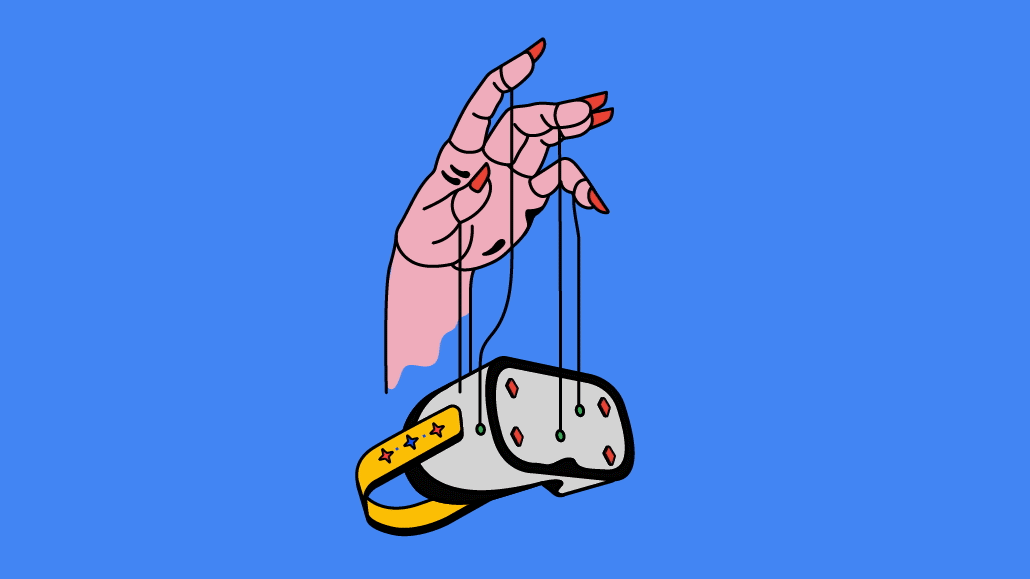Secure your place at the Digiday Publishing Summit in Vail, March 23-25
Why Puma sees Web3 and the metaverse as its next great commerce opportunity

Some brands are still trying to figure out their approach to Web3, but Puma is a true believer. The sportswear brand views Web3 as a commerce opportunity on the level of e-commerce and the social media boom — and this time around, Puma is looking to get in on the ground floor of the trend.
The brand is no stranger to Web3. It already has its own Unreal-Engine-based virtual world, Black Station and a non-fungible token project titled Super Puma PFP, as well as in-game activations like a “Fortnite” collaboration with pro footballer Neymar. With that said, Puma is looking to build a more fully-formed plan to knit all these sorts of investments together.
A core element of the company’s Web3 strategy is its relatively broad definition of the term, which includes both NFT projects and non-blockchain immersive worlds such as “Fortnite” and Roblox.
“We basically define it as any new marketing technologies that are kind of shaping the way consumers interact with brands,” said Ivan Dashkov, Puma’s head of emerging marketing tech and Web3.
As Web3 becomes less of a flashy experiment and more of a consistent element of brands’ ongoing marketing mix, this broader view of the space has grown in popularity. It’s the same definition of Web3 used by Vayner3, a self-described “Web3 consultancy” that became one of the launch partners of Roblox’s Partner Program last month.
“That’s a conversation that we’ve been having with our partners when we’re thinking about the next era of the internet,” said Vayner3 president Avery Akkineni. “It’s going to encompass multiple adjacent technologies, whether that’s immersive experiences or blockchain-based.”
Puma’s reason for leaning so hard into its vision for Web3 is simple: it doesn’t want to miss the boat — yet again — on the next big shake-up to the retail world, and it sees the coming of Web3 commerce as a potentially seismic shift.
“We weren’t sure if e-comm was going to take off when it happened, and now we’re playing a little bit of catch-up. The same thing happened with social media; I think the brand wasn’t quite sure how much to invest in social media,” Dashkov said. “Now, we’re in this Web3 world, where we’re seeing all these new technologies — and as a brand, we kind of look back at e-comm and social, and we definitely don’t want to miss out on this one.”
Although Puma’s e-commerce business has exploded in recent years — the brand’s e-commerce grew by 11.8 percent in Q3 2022, accounting for a significant portion of Puma’s roughly $538 million in direct-to-consumer sales that quarter — its numbers are still a fraction of rivals such as Nike, which generated over $13 billion in e-commerce sales over the past fiscal year. By 2030, the metaverse economy could be worth trillions, according to a report released last year by Citi.
For the moment, direct commerce opportunities inside Web3 environments are still somewhat limited. Although Puma customers have the ability to buy physical sneakers via the brand’s Black Station virtual space, it’s still impossible to directly purchase physical goods through more popular virtual platforms like “Fortnite” and Roblox. But industry observers believe it is inevitable for more commerce opportunities to appear in these platforms, demonstrating the potential benefits of Puma’s early investment.
“You want to meet your consumer anywhere they are — that’s the whole idea of an omnichannel retailer, right?” said Justin Hochberg, CEO and founder of Virtual Brands Group. “You’re selling at Bloomingdale’s, you’re selling at pop-ups, you’re selling on e-comm, you’re selling on DTC, et cetera. Now, there’s a new channel called the metaverse, and there’s consumers there.”
More in Marketing

Yahoo pauses IAB membership amid a series of quiet cost-saving measures
Yahoo pulls IAB board memberships, following job cuts as PE-owner reportedly reconsiders ad tech investments.

Target looks to e-commerce, advertising investments to help grow the business
Technology is one of the most important areas in which Target will invest with the hopes of returning to profit growth.

‘The conversation has shifted’: The CFO moved upstream. Now agencies have to as well
One interesting side effect of marketing coming under greater scrutiny in the boardroom: CFOs are working more closely with agencies than ever before.








